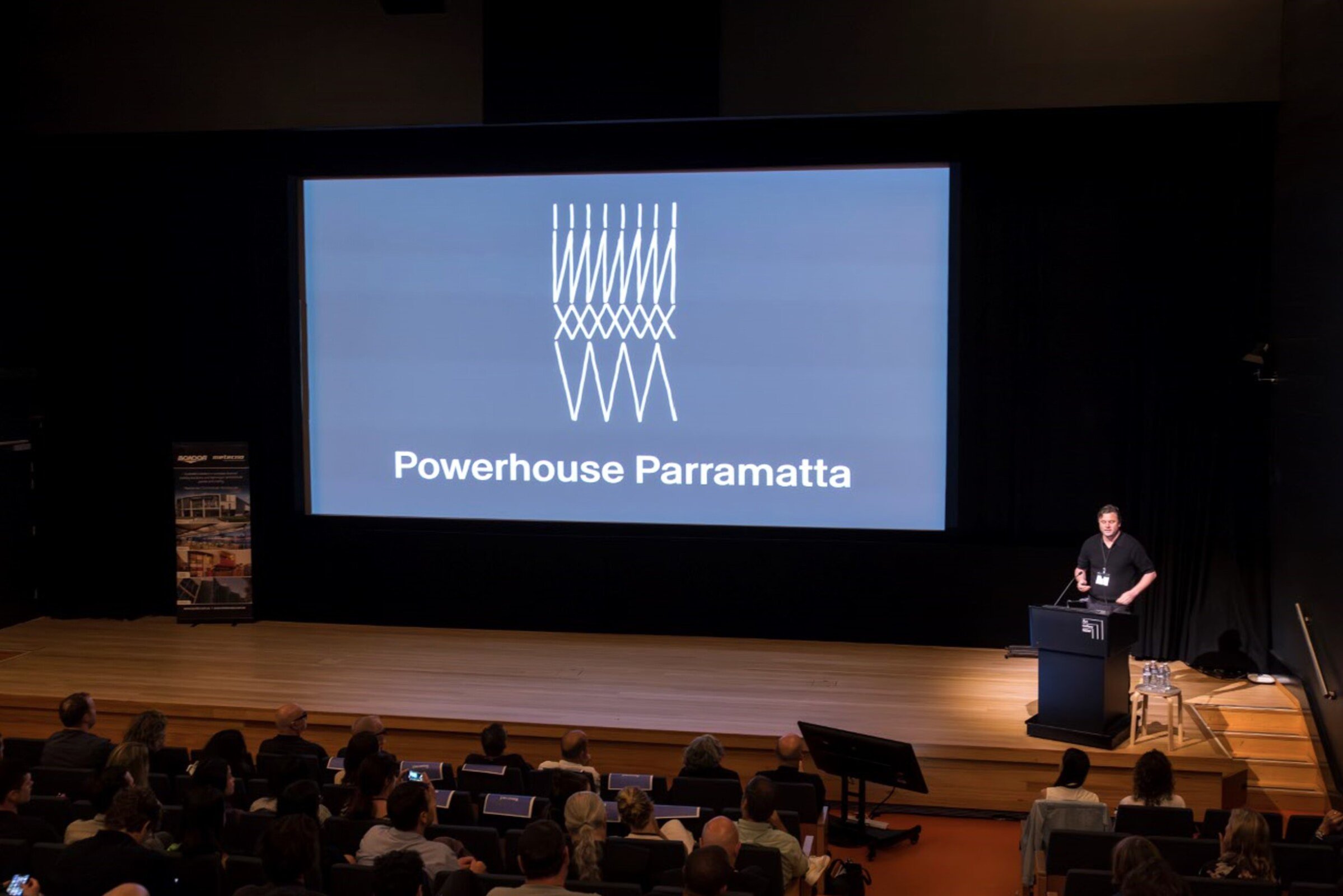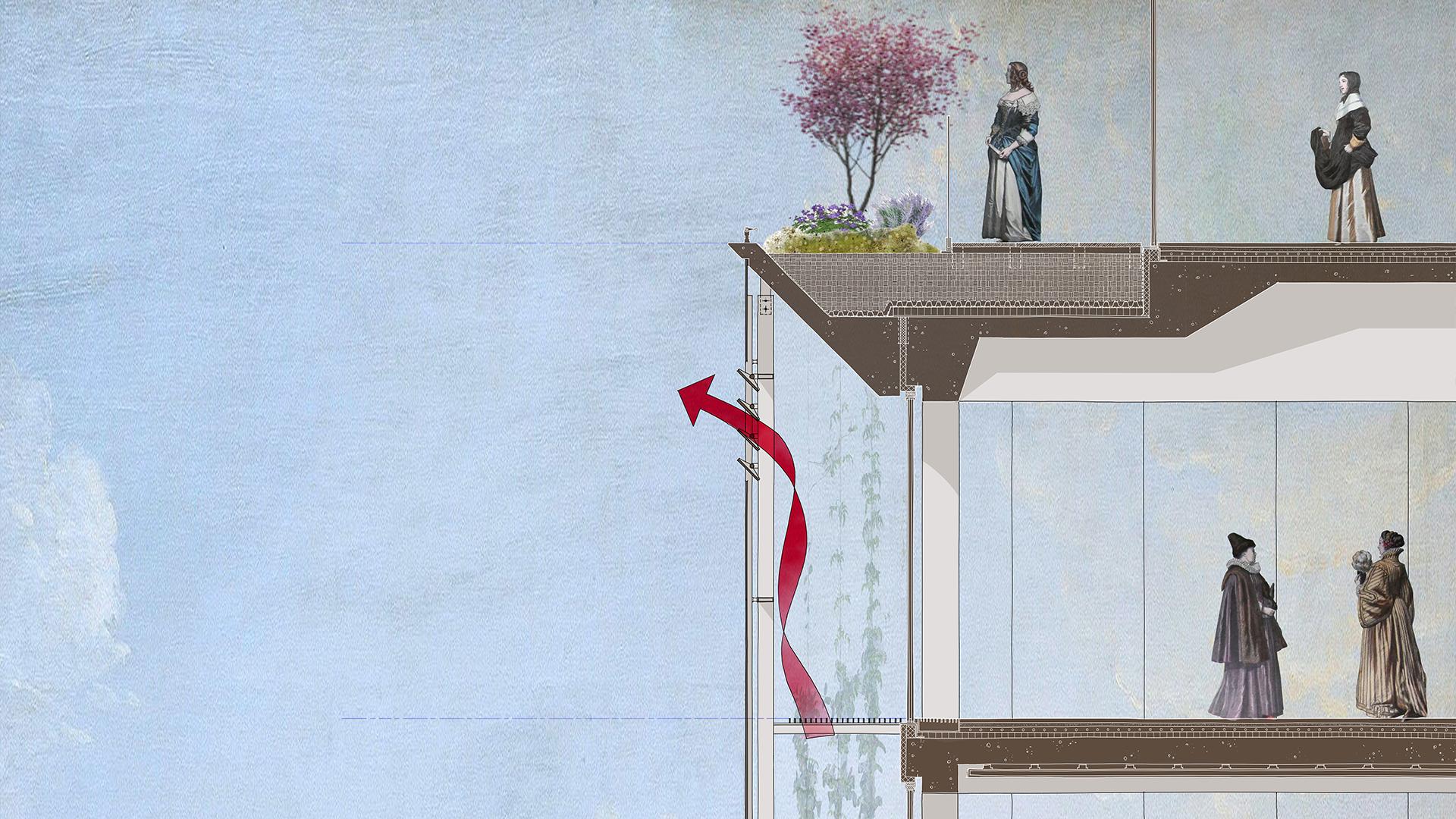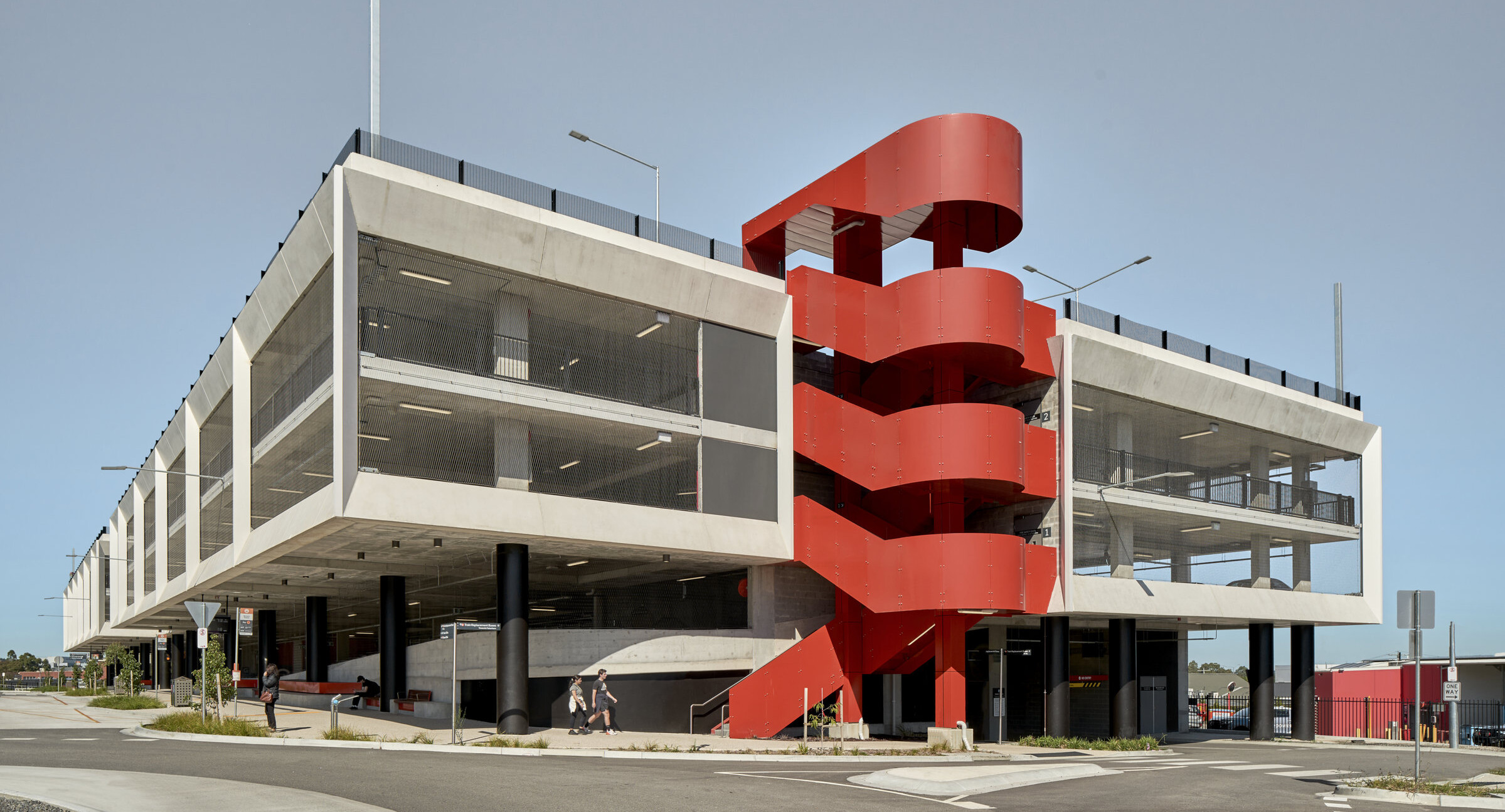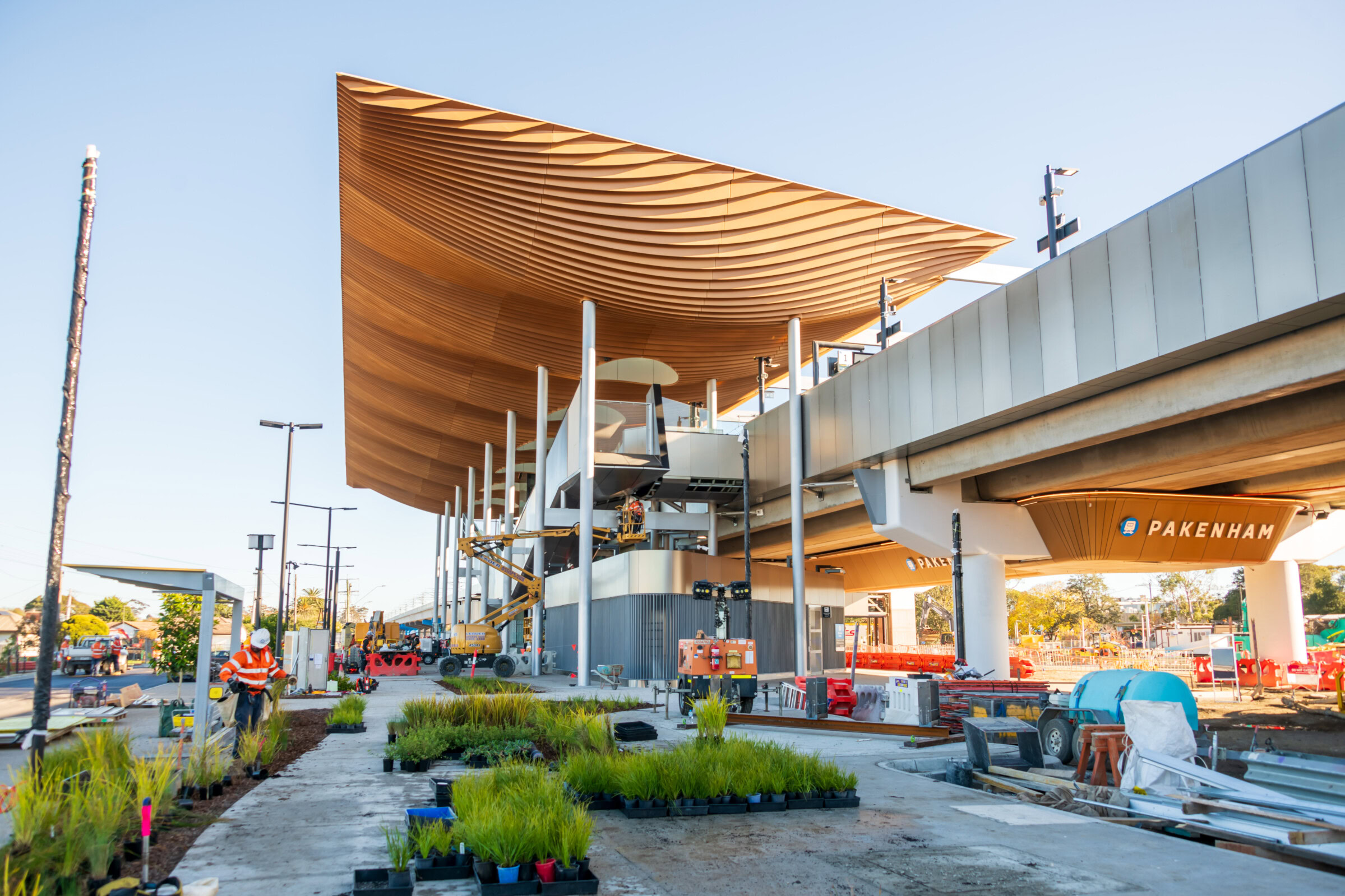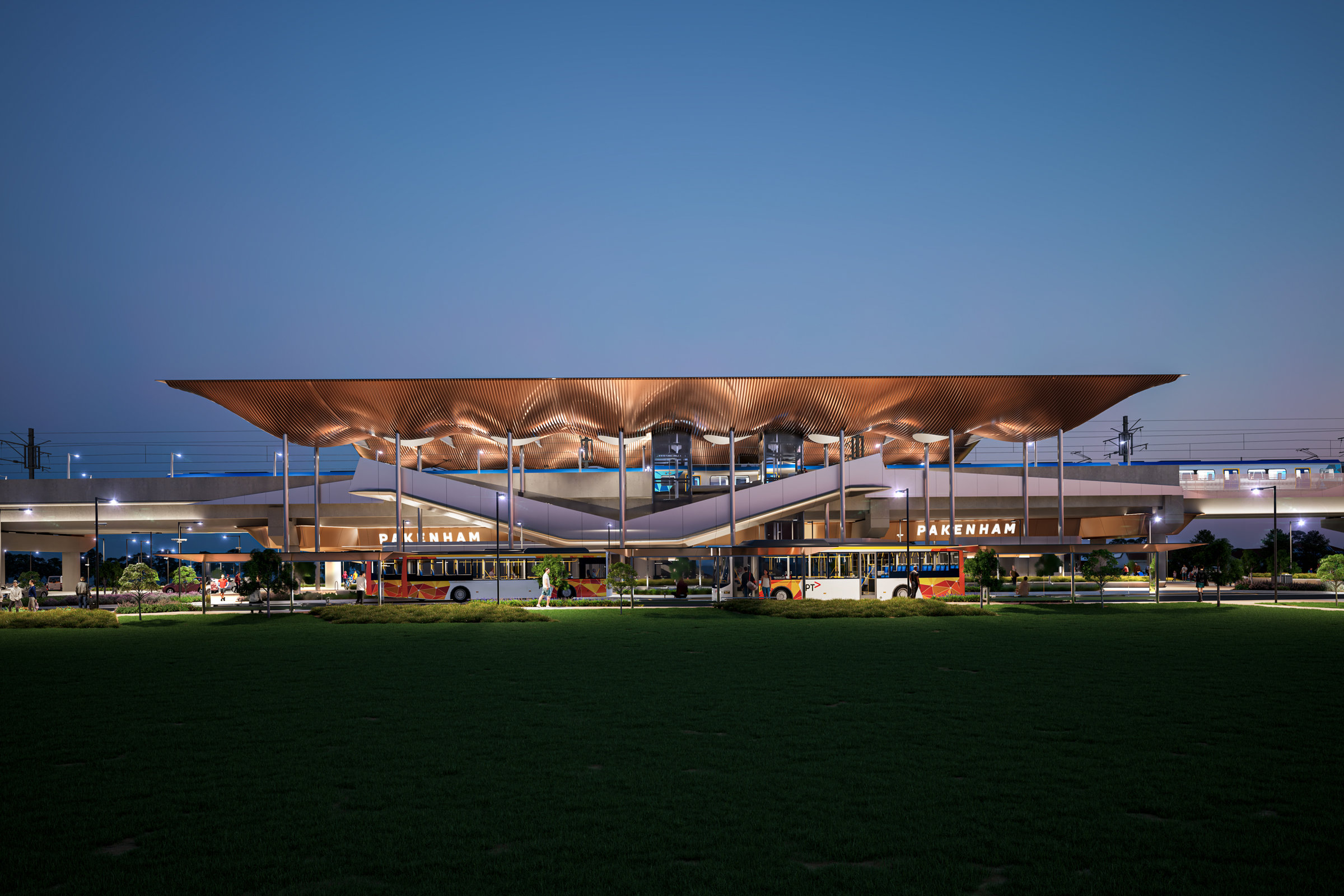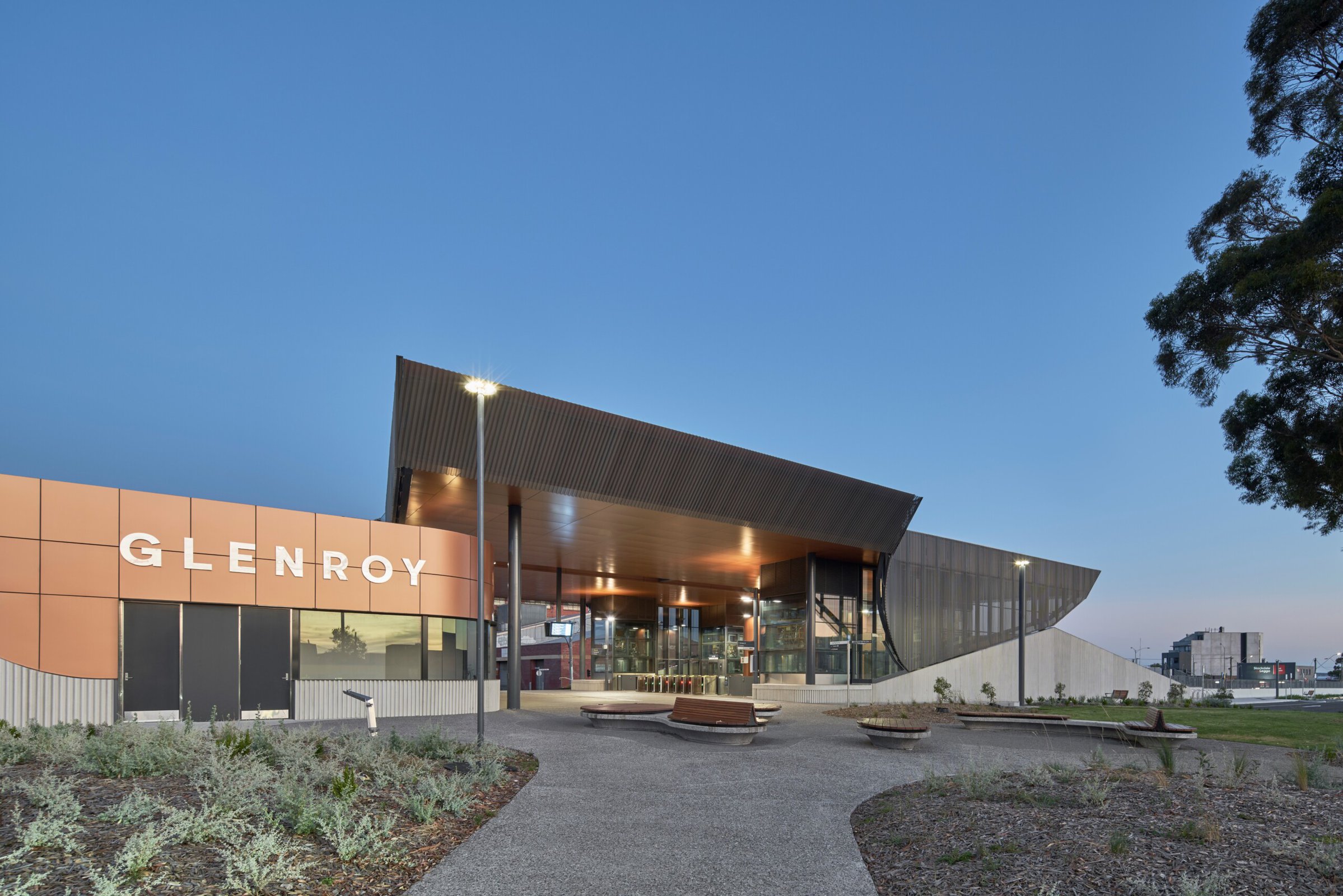Reservoir Station has won the Rail Sustainability Award at the 2021 Australasian Rail Industry Awards, a program seeking to recognise and celebrate the achievements, innovation and successes of those working in the rail industry.
“The dedication of the North West Program Alliance to their communities and to sustainability is admirable, and we are thrilled to see our collaboration acknowledged by the broader industry,” says Genton Principal Jamie McCutcheon.
“At Genton, sustainability is inherent to our design process, rather than an add-on, and is crucial to our commitment to positively contribute to the public realm.”
As the first station in Australia to receive a five-star sustainability rating by the Green Building Council of Australia, Reservoir Station has been lauded as the benchmark for future level crossing removal projects.
Australasian Railway Association Chair and awards judging chair Danny Broad acknowledged the significant sustainability benefits the project has driven for the community.
Resource efficiencies achieved by the project reduced project greenhouse gas emissions by 20 per cent and electricity demand by 41 per cent. The station only uses eight per cent of the water usage of traditional stations. Recycled, alternative and sustainable materials were also incorporated into construction.
“The judges were impressed by how the rail industry uses technology and sustainability to modernise the rail industry,” says Broad.
“It highlights how flexible rail is to adapt to deliver exceptional projects and initiatives for people using the rail network.”
Congratulations to our client, the North West Program Alliance (Level Crossing Removal Project, Metro Trains Melbourne, John Holland and KBR) and to our collaborating landscape architects McGregor Coxall.
Continue reading about the project via our Reservoir Station project profile.
We are proud to acknowledge the Wurundjeri Woi-wurrung people of the Kulin Nation, the Traditional Custodians of the Country in which Reservoir Station is located. We recognise their continuing connection to land, waters and culture.
Photography: Peter Clarke

